
The newly forged myth of Ukrainians as blonde and blue-eyed betrays a profound misconception of what Ukraine is, how Ukrainians view themselves, and how they historically have been viewed in the Tsarist and Soviet Empires. A 🧵 debunking the fundamentally wrong idea. 1/ 

From the early 19th century, all descriptions of Ukrainians portrayed them as sharing a particular set of facial features. Romantic Ukrainian literature, travel accounts, ethnographic works, and art contributed to the image of Ukrainians as dark-haired and brown-eyed. 2/ 

For Ukrainian activists, this ideal of beauty was a way to carve out a specific place for the Ukrainian nationality by stressing the distinctiveness of the Ukrainian body. The famous popular song “Black eyebrows, brown eyes” gives a sense of how common this stereotype was. 3/ 

This image settled in the Russian cultural imagination of the tsarist era. Here is a porcelain figurine of a Ukrainian woman from the series “The people of Russia,” commissioned by Nicholas II to portray ethnographic types living under the Russian crown. 4/ 


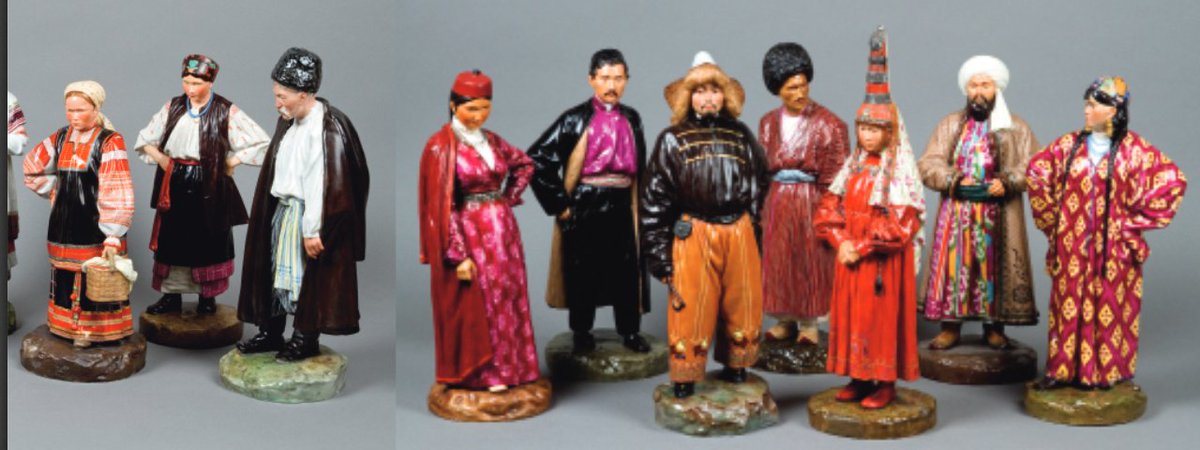
This is an allegory of the "tripartite Russian nation," with a dark-haired woman representing Ukraine. 5/ 
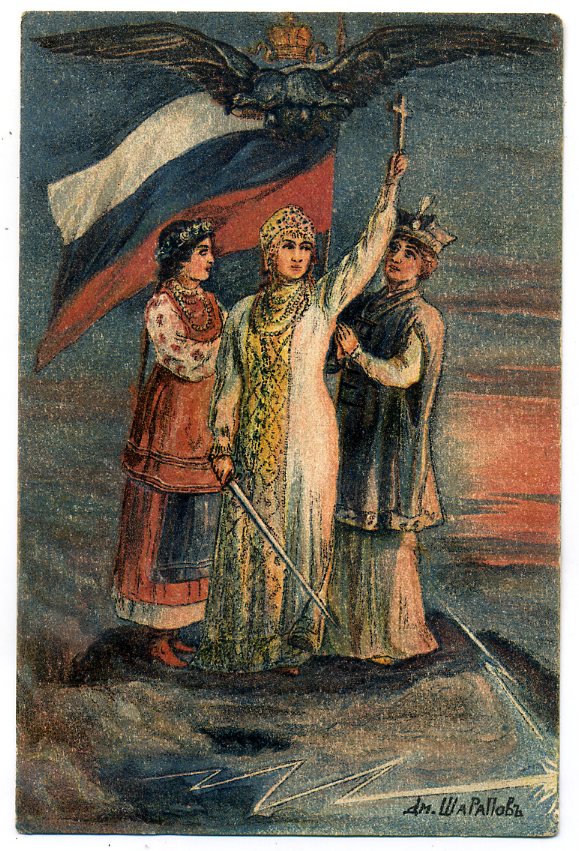
In the burgeoning field of physical anthropology of the early 20th century, Ukrainian scholars championed the idea of Ukrainian distinctiveness based on the color of eyes and hair. In his work “Anthropological peculiarities of the Ukrainian people” (1916)... 6/
...one of the most famous tsarist anthropologists, Khvedir Vovk/Fedor Volkov, asserted that “Ukrainians are quite a homogenous people, dark-haired and brown-eyed.” 7/
Even thous this argument intended to draw the line of distinction between Ukrainians and Russians in terms of their appearance, some Russian opponents of Vovk did not object — only to present Ukrainians as racially inferior. 8/
The Russian nationalist (himself of Ukrainian origin) Andrei Storozhenko evoked the concept of race in his work “The Ukrainian Movement” (which influenced Putin’s idea of Ukraine) to claim that “nationally minded” Ukrainians were "racially inferior" to the “Russian race.” 9/
The reason was the racial mixing of Ukrainians with steppe nomads, which made them “dark-skinned and dark-haired.” According to him, people of “inferior races” spoiled “mental qualities” of Ukrainians, which is why they were characterised by “dullness and narrowness of mind.” 10/
With the rise of Aryanism and its ideal of the Nordic race in interwar Europe, right-wing Ukrainian thinkers acknowledged that Ukrainians would hardly qualify as the bearers of "superior traits." The pioneer of Ukrainian ethno-nationalism Dmytro Dontsov... 11/
...who, under the influence of eugenic ideas, believed in the primacy of the Nordic race, nevertheless regretted that, “unfortunately,” blue eyes and blond hair were “the least presented” among Ukrainians. 12/
The Soviet visual propaganda widely reproduced this image. Posters touting the myth of the friendship of nations usually depicted Ukrainians as dark-haired and brown-eyed, in contrast to blue-eyed and blonde Russians. 13/ 



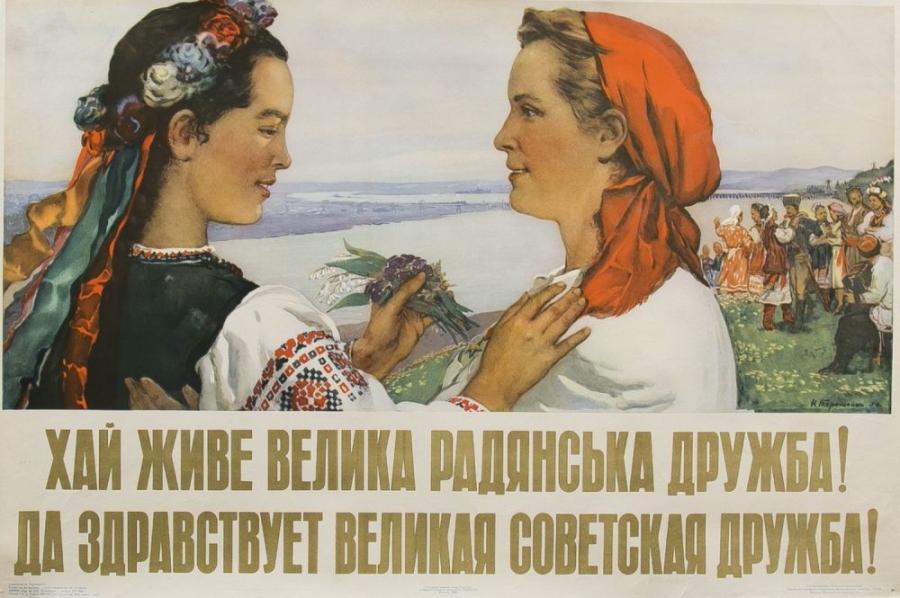


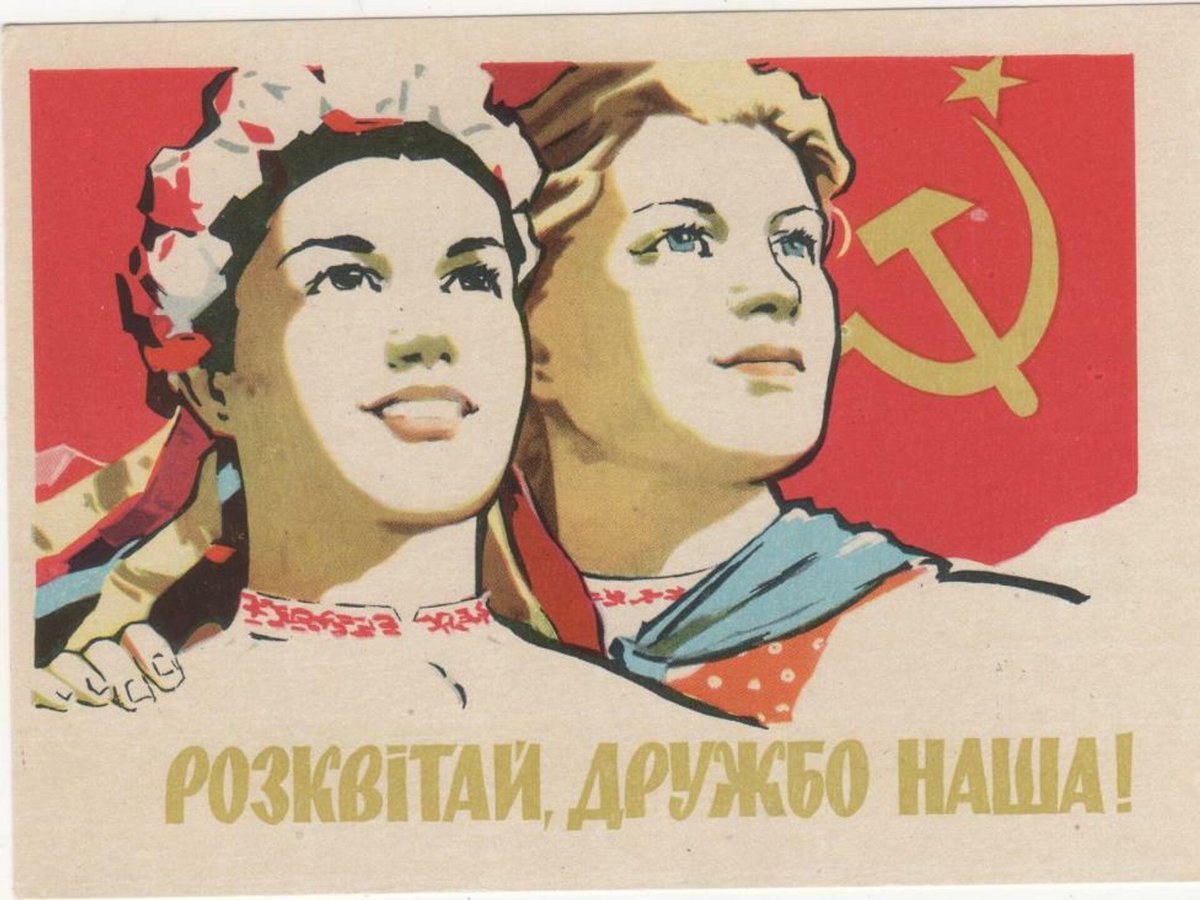
A male figure symbolizing Russia was normally portrayed as a man wearing a suit, a bearer of modernity and civilization, who led representatives of other nations, dressed in folk costumes (as if they were unfit for the modern world), to the bright communist future. 14/ 



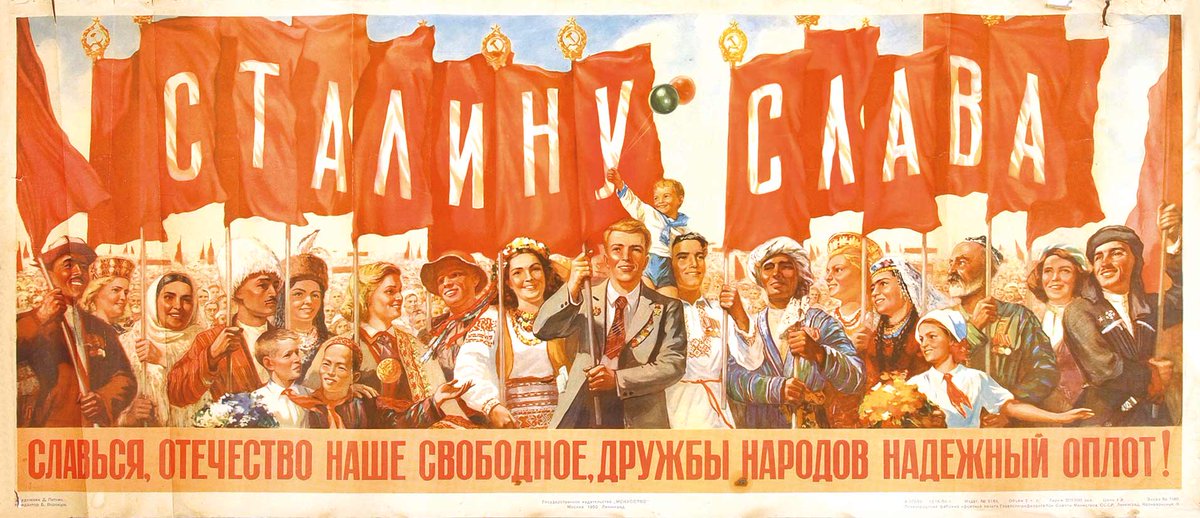
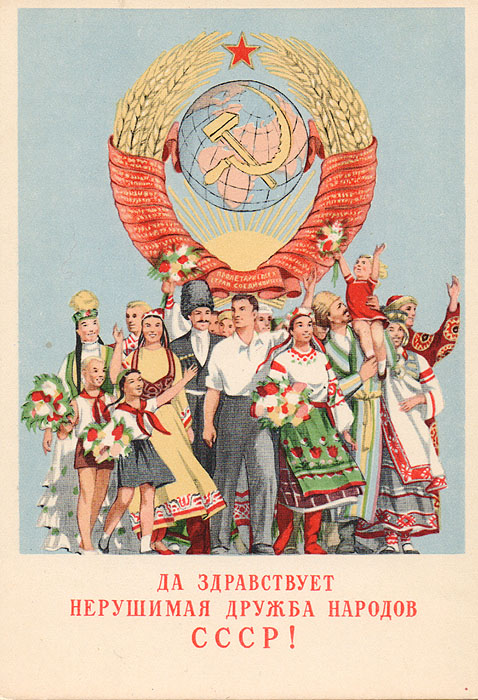


Unlike Ukrainians, Russians were normally depicted in the Soviet propaganda as blue-eyed blondes. If East Slaves were ever portrayed as the bearers of "Nordic" features, it was the Russian, not Ukrainian, perception of themselves. 15/ 
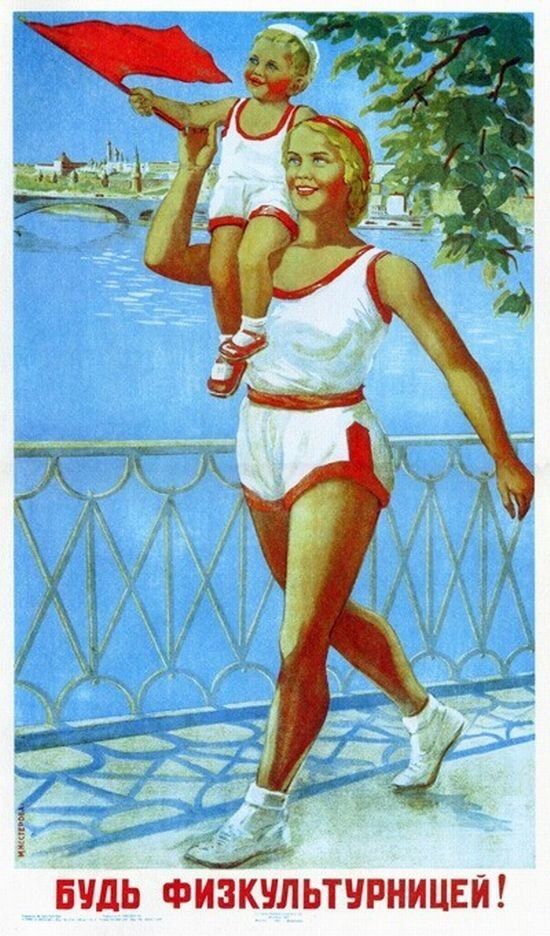
How do “ethnic” Ukrainians *really* like? The chief Ukrainian ethnologist Serhii Seheda says that up to 70% of them are brown-eyed and dark-haired, the others have brown hair and dark eyes, while a small percentage have light eyes. Take it with a grain of salt. 16/
Ethnicity is an elusive category, which is impossible to measure and define, but the stereotype of blonde and blue-eyed Ukrainians doesn't make any sense. It's a way of making claims on behalf of Ukrainians, ascribing to them an “ideal” they never upheld themselves. end/
“*really* look like”
Gosh, “East Slavs.” @elonmusk, give us the edit button!
• • •
Missing some Tweet in this thread? You can try to
force a refresh















